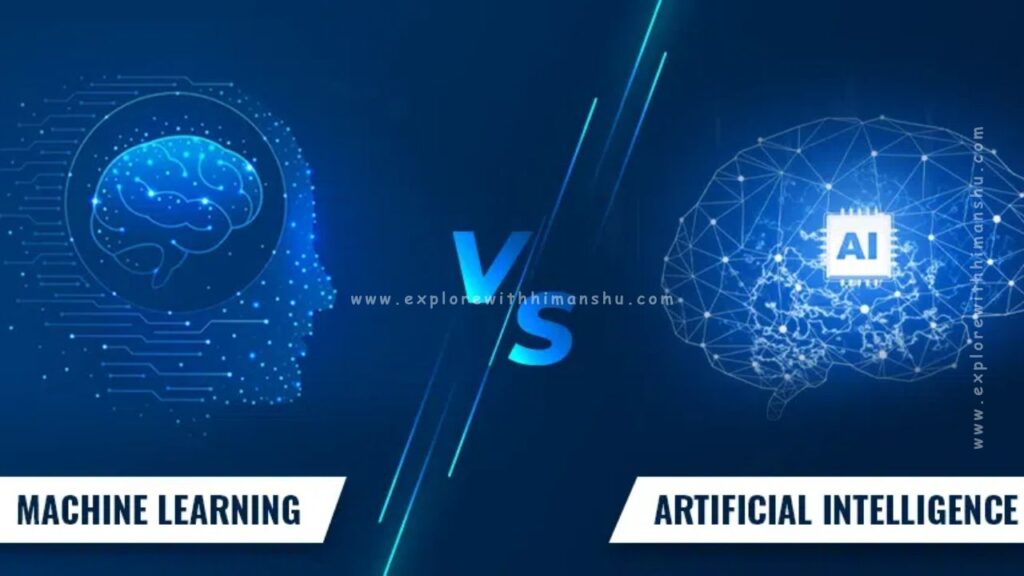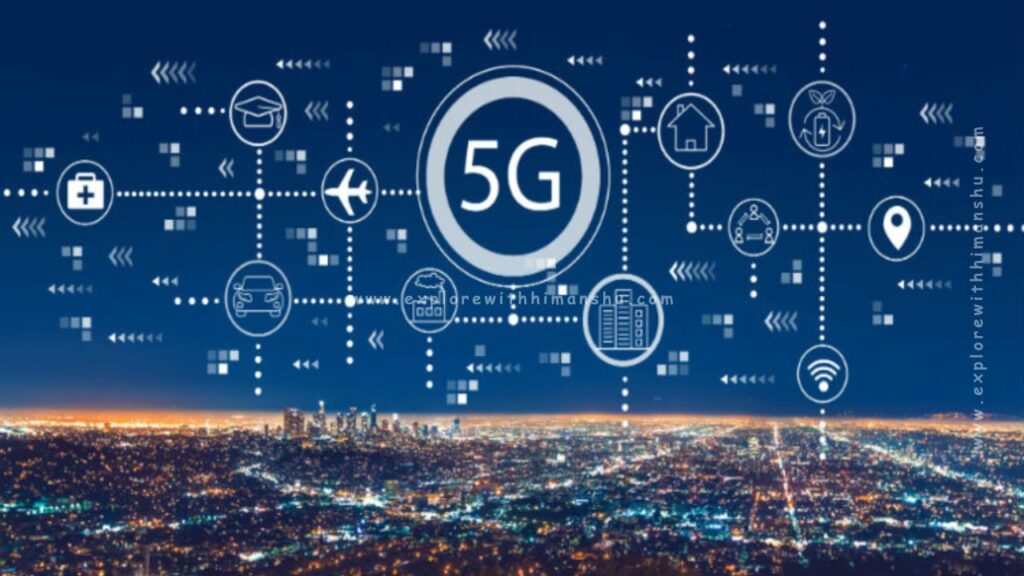Introduction :-
Technology is evolving at an exceptional tempo, reshaping industries, groups, and everyday existence. In 2025, emerging technologies consisting of Artificial Intelligence (AI), Quantum Computing, 5G, Blockchain, Augmented Reality (AR), and the Internet of Things (IoT) are set to revolutionize how we engage with the world. From smart cities to completely computerized places of work, the destiny of technology is more thrilling than ever.
Explore the future of technology in 2025 with insights into AI, IoT, 5G, blockchain, and quantum computing. Discover groundbreaking innovations reshaping industries and everyday life !
This blog explores the latest advancements, their impact on various sectors, and what lies ahead for the technological landscape. Let’s take a deep dive into the innovations shaping our world.

Chapter 1: Artificial Intelligence (AI) and Machine Learning (ML)
AI’s Role in 2025
Artificial Intelligence has transformed industries by enhancing automation, efficiency, and decision-making. In 2025, AI applications range from self-learning chatbots to predictive analytics in medicine, finance, and security. AI’s ability to analyze large datasets and generate meaningful insights has become a critical business tool.
Key Developments in AI
- Generative AI Models – AI tools like ChatGPT, DALL·E, and Google Gemini are revolutionizing content creation, coding, and automation.
- AI in Healthcare – Machine learning algorithms help detect diseases earlier, personalize treatments, and optimize patient care.
- Autonomous Vehicles – AI-driven cars are reducing human error and making transportation safer.
- AI and Cybersecurity – AI-powered security systems can detect threats in real time, reducing cyber risks.
The Impact of Artificial Intelligence on Employment: Replacing Jobs or Creating Opportunities?
Case Study: AI in Healthcare
A study by MIT revealed that AI-assisted diagnostics can increase the accuracy of disease detection by 40% compared to traditional methods. AI models are now used to analyze medical images, detect cancers, and predict potential health risks before symptoms arise.
| AI Innovation | Industry Impact |
|---|---|
| Generative AI | Enhances automation and content creation |
| AI Chatbots | Improved customer service and business communication |
| AI Healthcare Diagnostics | Early detection and personalized treatments |
Chapter 2: The Internet of Things (IoT) and Smart Cities
The Power of IoT in 2025
The Internet of Things (IoT) has evolved into a fully integrated ecosystem that connects billions of devices, sensors, and data points. By 2025, IoT technology is embedded in smart homes, connected factories, and digital health monitoring systems.
Key IoT Innovations
- Smart Cities – IoT helps manage traffic, reduce energy consumption, and improve urban planning.
- Smart Homes – AI-powered IoT devices control lighting, security, and energy use.
- Industrial IoT (IIoT) – Enhances automation, predictive maintenance, and operational efficiency.
Table: Benefits of IoT in Smart Cities
| IoT Application | Benefit |
|---|---|
| Smart Traffic Lights | Reduce congestion and improve transportation efficiency |
| Connected Healthcare Devices | Remote monitoring and instant medical alerts |
| IoT-Based Waste Management | Optimize waste collection and recycling |

Chapter 3: The Rise of 5G and Beyond
How 5G is Revolutionizing Connectivity
The 5G revolution is paving the way for faster internet speeds, ultra-low latency, and enhanced connectivity. In 2025, 5G has enabled innovations such as real-time AR/VR applications, smart factories, and autonomous vehicles.
Key Applications of 5G
- Smart Cities – 5G supports real-time monitoring and control systems.
- Augmented and Virtual Reality (AR/VR) – High-speed networks power immersive experiences.
- Remote Work & Telemedicine – Seamless video conferencing and digital healthcare solutions.
Case Study: 5G in Smart Manufacturing
A report by Ericsson found that 5G-powered smart factories can increase efficiency by 30% through predictive maintenance and automation.
Chapter 4: Blockchain and the Future of Finance
Blockchain’s Role in Security and Decentralization
Blockchain technology is transforming how data is stored, secured, and shared. From cryptocurrencies to supply chain management, blockchain is creating a trustless, decentralized world.
Key Blockchain Innovations
- Decentralized Finance (DeFi) – Eliminates traditional banking intermediaries.
- NFTs & Digital Ownership – Secure and verifiable ownership of digital assets.
- Supply Chain Transparency – Improves tracking and verification of products.
Table: Blockchain Benefits by Industry
| Industry | Blockchain Application |
|---|---|
| Finance | Secure transactions, decentralized banking |
| Healthcare | Medical record security |
| Logistics | Transparent supply chains |

Chapter 5: Quantum Computing – The Next Frontier
What is Quantum Computing?
Quantum computing harnesses the principles of quantum mechanics to perform complex calculations at unprecedented speeds. This technology could revolutionize industries such as cryptography, AI, and drug discovery.
Future Applications of Quantum Computing
- Cryptography – Unbreakable security systems.
- AI & Data Science – Faster and more accurate AI models.
- Drug Discovery – Accelerated development of new medicines.
Case Study: Quantum Computing in Drug Discovery
Pharmaceutical companies are using quantum computers to simulate molecular structures, reducing drug development time by years.
Conclusion – Bright Future of Technology
The future of technology in 2025 is filled with groundbreaking innovations that will redefine how we live and work. AI, IoT, 5G, blockchain, and quantum computing are set to drive the next wave of digital transformation. Businesses, governments, and individuals must adapt to these changes to stay competitive and take advantage of emerging opportunities.
The digital transformation era has also brought demanding situations. Issues like cybersecurity threats, data privacy concerns, and the virtual divide must be addressed to make sure a balanced and inclusive technological future. Governments, businesses, and people all have roles to play in navigating this evolving panorama responsibly. The key to harnessing technology’s full capability lies in adapting, getting to know, and innovating constantly.
As these innovations continue to evolve, we must remain adaptable and forward-thinking. The technology of today is laying the foundation for the future of humanity. Whether you are a business leader, entrepreneur, or tech enthusiast, staying ahead of these trends will ensure you make the most of the digital revolution.
The next decade will bring even more remarkable technological advancements, making life more efficient, secure, and interconnected. By embracing these changes, we can create a world where technology serves as a powerful tool for innovation, efficiency, and human progress
Final Thoughts
- AI will automate complex tasks and improve decision-making.
- IoT will make cities, homes, and industries smarter.
- 5G will enhance connectivity and unlock new digital experiences.
- Blockchain will transform finance and security with decentralized systems.
- Quantum computing will redefine computational power and problem-solving.
The world of technology is evolving rapidly, and the innovations of today will shape the industries of tomorrow. Whether you’re a business leader, tech enthusiast, or an everyday user, staying informed about these technological advancements will be crucial for success in the digital era.
Let’s embrace the future and leverage technology to create a smarter, more connected world! 🚀


